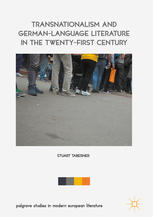

Most ebook files are in PDF format, so you can easily read them using various software such as Foxit Reader or directly on the Google Chrome browser.
Some ebook files are released by publishers in other formats such as .awz, .mobi, .epub, .fb2, etc. You may need to install specific software to read these formats on mobile/PC, such as Calibre.
Please read the tutorial at this link: https://ebookbell.com/faq
We offer FREE conversion to the popular formats you request; however, this may take some time. Therefore, right after payment, please email us, and we will try to provide the service as quickly as possible.
For some exceptional file formats or broken links (if any), please refrain from opening any disputes. Instead, email us first, and we will try to assist within a maximum of 6 hours.
EbookBell Team

4.8
14 reviewsThis book examines how German-language authors have intervened in contemporary debates on the obligation to extend hospitality to asylum seekers, refugees, and migrants; the terrorist threat post-9/11; globalisation and neo-liberalism; the opportunities and anxieties of intensified mobility across borders; and whether transnationalism necessarily implies the end of the nation state and the dawn of a new cosmopolitanism. The book proceeds through a series of close readings of key texts of the last twenty years, with an emphasis on the most recent works. Authors include Terézia Mora, Richard Wagner, Olga Grjasnowa, Marlene Streeruwitz, Vladimir Vertlib, Navid Kermani, Felicitas Hoppe, Daniel Kehlmann, Ilija Trojanow, Christian Kracht, and Christa Wolf, representing the diversity of contemporary German-language writing. Through a careful process of juxtaposition and differentiation, the individual chapters demonstrate that writers of both minority and nonminority backgrounds address transnationalism in ways that certainly vary but which also often overlap in surprising ways.